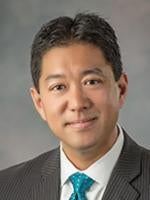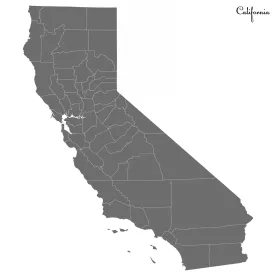Highlights
New California law requires private employers with more than 500 employees in the U.S. to provide California employees with supplemental paid sick leave if affected by COVID-19
An employer may not require an employee to use other paid time off, paid or unpaid leave or vacation time before or in lieu of COVID-19 supplemental paid sick leave
The law also includes additional new rules specifically for food sector employers doing business in California
Effective immediately, California Assembly Bill 1867 (AB 1867) requires private employers with more than 500 employees nationally to provide their California employees with supplemental paid sick leave related to COVID-19.
The law is effective until Dec. 31, 2020 or the expiration of any federal extension of the Families First Coronavirus Response Act, whichever occurs later.
The new law (to be codified as Labor Code Section 248.1) also applies to public and private employers of healthcare workers and first responders who originally opted not to provide paid sick leave.
According to Gov. Gavin Newsom’s office, the bill “eliminates coverage gaps to ensure every employee has access to paid sick days if they are exposed or test positive to COVID-19 for 2020.” Those gaps are between COVID-19 related federally-mandated paid sick leave and the Governor’s Executive Order requiring paid sick leave for food service workers, which will be codified as Labor Code section 248.
Circumstances That Result in Entitlement to Supplemental Paid Sick Leave
Employees who must perform their jobs at the worksite are entitled to supplemental paid sick leave if they are:
- Subject to a COVID-19-related federal, state or local self-quarantine or isolation order
- Advised by a healthcare provider to self-quarantine or isolate because of COVID-19-related concerns
- Prohibited by their employer from working because of concerns about possible COVID-19 transmission
Amount of Paid Sick Leave Employees May Take
The amount of COVID-19 supplemental sick pay California employees are entitled to is as follows:
- Full-time employees who were scheduled to or did work an average of at least 40 hours a week in the two weeks preceding the start of the leave (with exceptions for some firefighters): 80 hours of sick pay
- Employees who work a set weekly schedule: the total number of hours the employee normally is scheduled to work in a two-week period
- Employees who work variable hours:
- If the employee worked at least six months – 14 times the average number of hours the employee worked each day in the six months preceding the start of the leave
- If the employees worked less than six months and more than 14 days – the average hours worked during the employment
- If the employee worked 14 or fewer days – the total number of hours worked during the employment
While it is the employee’s choice regarding the number of COVID-19 supplemental paid sick leave hours to use, the employer must make COVID-19 supplemental paid sick leave available for immediate use upon the employee’s oral or written request and cannot require medical certification.
The California Division of Labor Standards Enforcement (DLSE) advises that an employer cannot deny leave because of an absence of certification, though it may, in certain circumstances, be reasonable to request documentation before paying sick leave if there is information to suggest the employee is requesting sick leave for an illegitimate reason. As an example, the DLSE offers the scenario in which an employee is under a quarantine order, but the employer learns the employee was in a park.
Hourly Rate of Pay Calculation
COVID-19 supplemental sick pay must be paid at an hourly rate that is the highest of the: 1) the employee’s regular rate of pay for the last pay period (including amounts required by any applicable collective bargaining agreement), 2) state minimum wage, or 3) local minimum wage. The maximum amount of COVID-19 supplemental sick pay is $511 per day and $5,110 total per employee.
An employer may not require an employee to use other paid time off, paid or unpaid leave or vacation time before or in lieu of COVID-19 supplemental paid sick leave. In addition, an employee may use this supplemental leave, in addition to any paid sick leave that may already be available under California Labor Code Section 246. Supplemental paid sick leave runs concurrently with other types of leave (except regular paid sick leave).
Employers Who Provided COVID-19-Related Paid Sick Leave Voluntarily
Employers who previously were not required to provide COVID-19 paid sick leave, but who provided leave at a lower rate than required by the new law, may retroactively provide supplemental pay to employees in an equal or greater amount than the new law requires. Moreover, employers who provided supplemental paid benefits that could be used for COVID-19 are entitled to offset those paid leave hours against the number of COVID-19 supplemental paid sick leave hours the new law mandates.
Additional Provisions
- Food sector employees. Employees who work in a “food facility,” as defined under California’s Health & Safety Code, must be allowed to wash their hands every 30 minutes and additionally, as needed. Further, retroactive to April 16, 2020, employers must provide supplemental paid sick leave for food sector workers who qualify for leave for articulated COVID-19-related reasons (which codifies Executive Order N-51-20).
- Updated Wage Statements and Written Notice. Non-food sector employers must revise their wage statements (such as a separate line item, e.g., “Supplemental COVID-19 Leave”) or provide employees with a separate writing that gives them notice of how much supplemental paid sick leave is available per pay period under the new legislation. Employers who fail to provide this information by the next full pay period following the bill’s Sept. 9, 2020, enactment could be subject to liability.
- Enforcement. The law authorizes the Labor Commissioner to cite employers for a lack of paid sick days, which Gov. Newsom states is “a critical enforcement tool that will promote safety for employees and customers alike.” The Labor Commissioner has created a model notice.
- Mediation. The bill will create a Department of Fair Employment and Housing (DFEH) small employer family leave mediation pilot program if the Governor approves SB 1383.
The speed with which this law became effective is likely to surprise employers. The DLSE website provides valuable helpful information, as does its chart of required leaves.
Employers who continue to have questions or concerns should consult competent California employment counsel to ensure they are complying with rapidly evolving COVID-19-related local and state laws.









 />i
/>i

